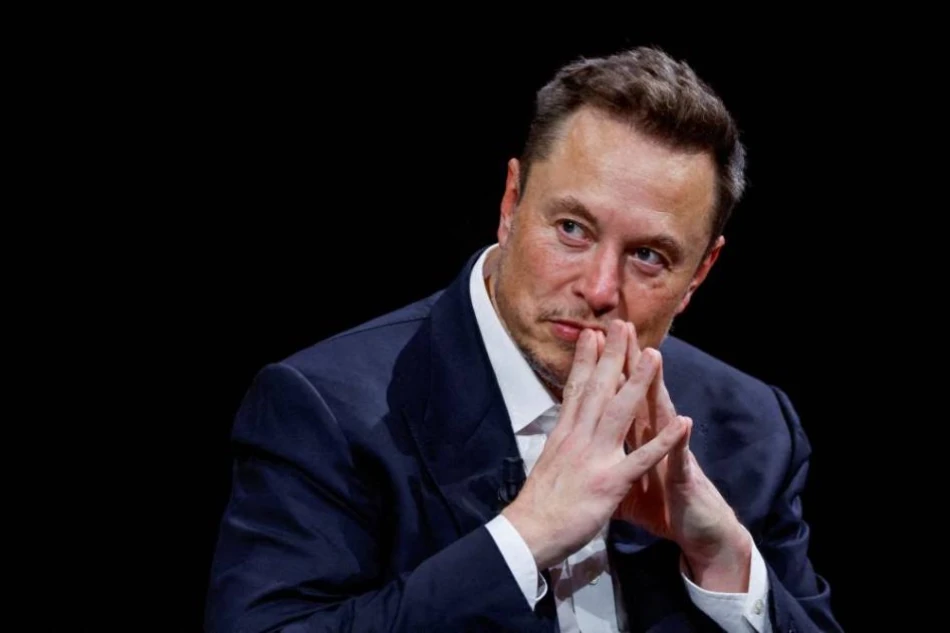
Tesla Grants Elon Musk $29 Billion in Stock Incentives
Tesla Grants Musk $29 Billion Stock Package as Company Pivots to AI and Robotics
Tesla has awarded CEO Elon Musk 96 million shares worth approximately $29 billion, marking a strategic move to retain the billionaire's leadership as the electric vehicle maker transforms into an artificial intelligence and robotics company. The massive compensation package comes after a Delaware court invalidated Musk's original 2018 pay deal, creating uncertainty around his long-term commitment to the company.
Legal Battle Forces Tesla's Hand
The new compensation structure emerges from legal necessity rather than corporate generosity. In 2024, a Delaware court struck down Musk's 2018 compensation package—valued at over $50 billion—ruling that Tesla's board approval process was flawed and unfair to shareholders. The court's decision highlighted concerns about corporate governance and the independence of Tesla's board when dealing with its high-profile CEO.
Tesla's board responded by forming a special committee to address Musk's compensation issues, though details remained scarce until this latest filing. The $29 billion package represents both a scaled-back approach from the original deal and a calculated risk by Tesla's board to maintain leadership continuity during a critical transformation period.
Strategic Pivot Beyond Electric Vehicles
The timing of this compensation package coincides with Tesla's most significant strategic shift since its founding. Musk, who holds a 13% stake in the company, is steering Tesla away from its original mission of affordable electric vehicles toward autonomous robotaxis and humanoid robots. This pivot positions Tesla as an AI and robotics specialist rather than a traditional automotive manufacturer.
Market Implications of the Transformation
This strategic realignment carries substantial implications for investors and the broader market. Unlike traditional automakers with established manufacturing processes and supply chains, Tesla's new direction places it in direct competition with tech giants like Google, Amazon, and emerging AI specialists. The success of this pivot could determine whether Tesla maintains its premium valuation or faces a reckoning similar to other tech companies that have struggled to monetize AI investments.
Voting Power as Retention Strategy
The special committee explicitly designed the compensation package to gradually increase Musk's voting power within Tesla—a structure both Musk and shareholders have identified as essential for maintaining his focus on the company's mission. This approach reflects lessons learned from other high-profile CEO departures where founders moved on to new ventures, leaving their original companies struggling with leadership transitions.
Under the new arrangement, Musk will pay Tesla $23.34 per share for restricted stock as it vests—the same exercise price from his invalidated 2018 grant. This structure ensures Musk has financial skin in the game while providing him with increased control over Tesla's strategic direction.
Investor Response and Market Dynamics
Tesla shares rose more than 2% in premarket trading following the announcement, suggesting investor approval of the retention strategy despite the substantial cost. This positive market reaction indicates that investors view Musk's continued leadership as more valuable than the $29 billion price tag, particularly given Tesla's ambitious pivot into AI and robotics.
The compensation package also addresses a growing concern among Tesla investors about Musk's divided attention across multiple ventures, including SpaceX, X (formerly Twitter), and his AI company xAI. The special committee acknowledged these competing interests while expressing confidence that the new incentive structure will keep Musk focused on Tesla's transformation.
Precedent for Tech Leadership Retention
Tesla's approach mirrors strategies employed by other technology companies facing founder retention challenges. Companies like Meta and Google have used dual-class share structures to maintain founder control, while others have offered substantial compensation packages tied to long-term performance metrics. Tesla's solution combines elements of both approaches, creating a hybrid model that could influence how other companies handle similar situations.
Most Viewed News

 Omar Rahman
Omar Rahman






